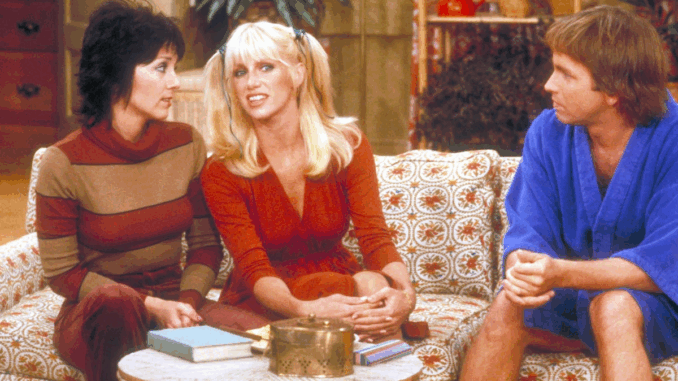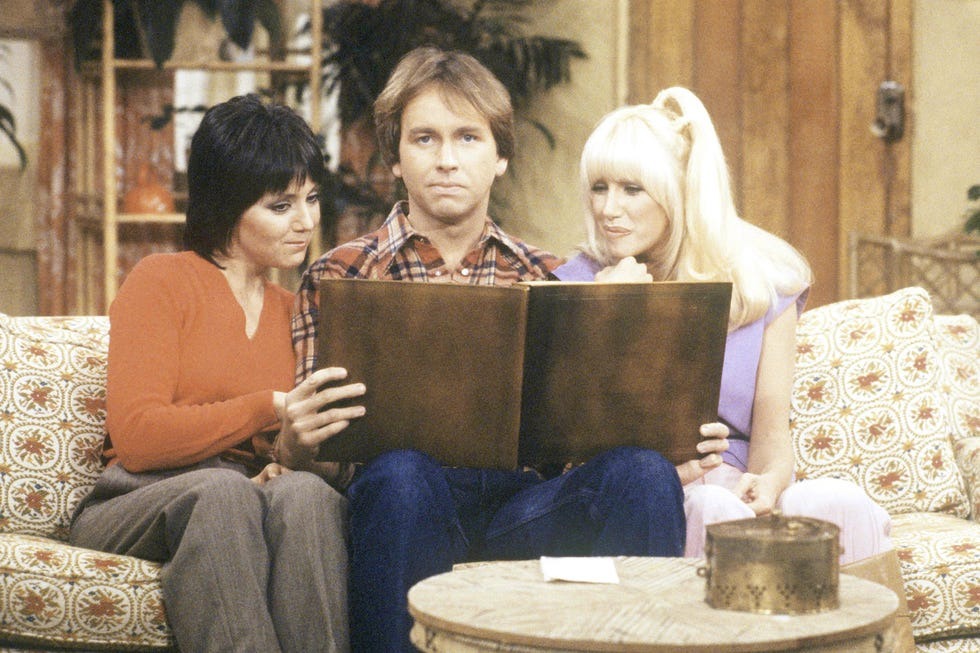
In 1977, the comedy Three’s Company turned social convention on its head with hilarious results and became an instant hit for ABC. But by 1981, amid behind-the-scenes drama during its fifth season, cast member Suzanne Somers, who played Chrissy Snow, drifted apart. She and co-star Joyce DeWitt, who played Janet Wood, then didn’t speak to each other for more than 30 years. So what happened?
Failed contract negotiations, not personal disputes within the cast, were at the root of the problem. In 1980, Somers demanded equal pay with co-star John Ritter, who played Jack Tripper, and other male TV stars at the time. According to People, that meant she was asking for $150,000 an episode, up from $30,000 an episode.
Instead of coming to an agreement, the producers fired Somers from the show. Her husband, Alan Hamel, a former television producer who represented his wife in negotiations, told People that the move was intended to discourage other women from following Somers’ example.
Adding to the tension, Somers still had to complete Season 5, but she wasn’t allowed to interact with the rest of the cast. Instead, her scenes were limited to awkward phone conversations filmed on a backstage set, where the actress was escorted to and from by a police officer.
Eventually, the character of Chrissy was replaced—first by cousin Cindy Snow (Jenilee Harrison) and then by nurse Terri Alden (Priscilla Barnes) from 1981 until the show ended in 1984.
More than three decades after the controversy, Somers and DeWitt finally reunited in February 2012. On Somers’ talk show Breaking Through, the pair shared an emotional hug and talked about their differing perspectives and divergent paths.
For Somers, who parlayed her Three’s Company fame into a Las Vegas play and later became a talk show host, author, and health and wellness entrepreneur, it was always about business. When she landed the role of Chrissy, she explained that she was a single mother who needed money (she married her second husband, Hamel, after winning the role). This is in stark contrast to the craft-focused DeWitt, who studied theater in college and earned a master’s in fine arts from UCLA.

“I always thought of this as a business venture… in a serious group of actors. I probably made all of you angry,” Somers said.
“[The show] created an opportunity for all of us to laugh together… It was a profound gift.”
DeWitt, who went on to have a successful theater career after the comedy ended, thanked Somers for giving her the opportunity to “speak her mind,” explaining that whenever asked about the hype surrounding the show, “I’ve always said that I think the only reason Three’s Company is memorable is because it created an opportunity for all of us to laugh together, to celebrate joy. It was a profound gift.”
She also shed light on another major difference between the two: DeWitt never wanted fame and has deliberately avoided it over the years. She did, however, express the utmost respect for Somers’ achievements. “You fought against cruelty, and it fell apart,” she said, but “what you did was monumental.”
In the second half of the segment, the two continued to reminisce about Ritter, who died in 2003. Somers described him as “the greatest comedian of our time.”
